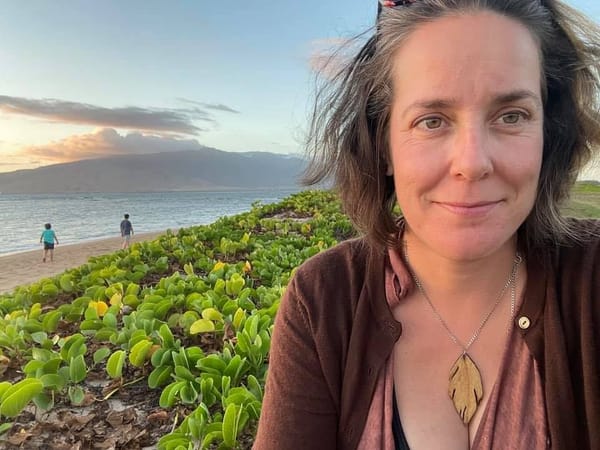Violent crime is all too familiar to Oaklanders, but last week’s murder of Jennifer Angel, the owner of the popular bakery Angel Cakes, may mark a turning point. The pendulum of opinion on public safety is finally beginning to swing the other way in our beleaguered city. Neighbors have had enough of predatory criminals, and are fighting back.
Last Monday, a pair of thieves broke Angel’s car window and stole her purse while she was inside. To retrieve her property, Angel pursued the thieves and fought them. During the altercation, she was knocked to the ground and dragged for more than 50 feet by their getaway vehicle, sustaining severe injuries; she died on Thursday.
Angel was a police and prison abolitionist. To honor her legacy, her family has asked for restorative justice instead of police intervention for the murderers, who have yet to be caught. Their statement read:
As a long-time social-movement activist and anarchist, Jen did not believe in state violence, carceral punishment, or incarceration as an effective or just solution to social violence and inequality. Jen’s family and friends ask that stories referencing Jen’s life do not use her legacy of care and community to further inflame narratives of fear, hatred, and vengeance, nor to advance putting public resources into policing, incarceration, or other state violence that perpetuates the cycles of violence that resulted in this tragedy.
Having sat with this statement for a couple days now, I have to say: I disagree—at least, if this means we must surrender to the criminals victimizing our neighborhoods. The day after Angel died, the Oakland Police Department put out a tone-deaf public statement to that effect, urging neighbors not to resist during criminal altercations: “If you are a victim of a crime, remember you can replace property, you can’t replace your life!”
Well, I call bullshit, and so did Angel. Her final actions showed that when it was her own valuables at stake, she was bravely prepared to fight, and ultimately die, for what was hers. We never will know why she decided not to let the thieves have her purse—as her ideological priors might have led us to expect—and to fight back. Perhaps she had just withdrawn a considerable sum from the bank and couldn’t afford to lose it.
If so, that would put her in the same position as many victims of crime in Oakland and across the nation. An astonishing share of working- and lower-middle-class Americans suffer chronic financial precarity due to systematically low wages. More than half of Americans lack $1,000 for emergency expenses, and studies have shown that it takes a poor person an average of three years of hard work and “good luck”—avoiding financial setbacks—to escape poverty for good.
“Bad luck” strikes when we lose catalytic converters and car windows to desperate fentanyl addicts—or a purse stuffed with hard-earned dollars to violent thieves.
The low-hanging fruit is now mostly gone for thieves. Fewer commuters are traveling with laptops to steal, and neighbors have wised up to the danger of leaving valuables in our vehicles. Criminals are having to take greater risks. For neighbors and local businesses, that means more home invasions, strong-armed robberies, and thieves who break into your car to steal from you while you are still in the vehicle.
Angel fought for hers the same way another neighbor of mine did the same week when he returned fire after being shot at as a thief was stealing his catalytic converter. They are joining a wave of neighbors who are choosing to be victims no longer.
“We aren’t mandated to sit back and let violent criminals run our neighborhoods.”
“Vigilantism” is a problem when there is someone else who can come and save you. That isn’t the case in Oakland: 911 calls go unanswered 20 percent of the time, and when they do pick up, it’s after the caller has waited an average of 19 minutes. We aren’t required to remain in poverty because thieves want to take what’s ours. We aren’t mandated to sit back and let violent criminals run our neighborhoods while we cower in fear.
Rest in power, Angel. I will honor you by doing whatever I can to make my neighborhood safe for the law-abiding, hard-working people who just want to get by.
